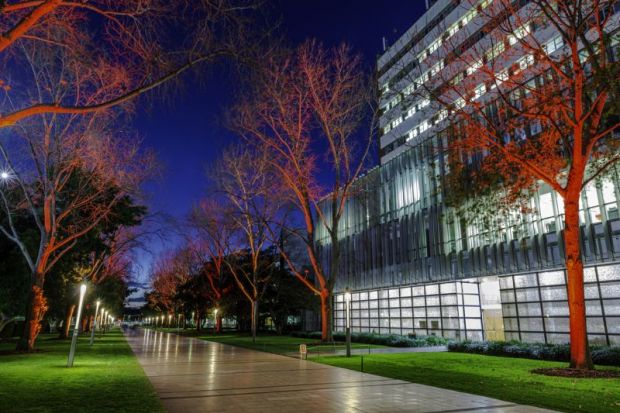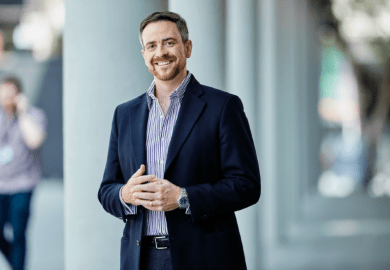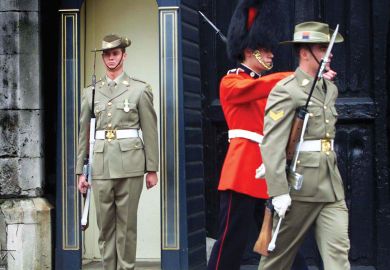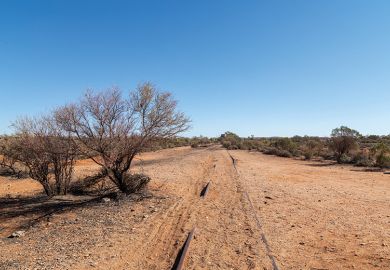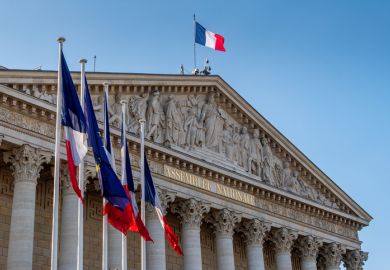Anointed UNSW Sydney vice-chancellor Attila Brungs will benefit from his experience of managing the decline in income from Chinese students, according to the university’s chancellor, David Gonski.
Mr Gonski said Professor Brungs, who has led the University of Technology Sydney (UTS) since 2014, was “very aware of the problems and opportunities” the Australian higher education sector confronted as the country’s borders remained closed.
“He is also very familiar with the benefits, demands and otherwise of the stakeholders in Australia,” Mr Gonski said. “[He] has had seven years at top level dealing with them.”
UNSW and UTS are among the Australian universities most financially exposed to international students, particularly from China. UTS earned 21 per cent of last year’s A$1.13 billion (£614 million) revenue from Chinese students, who comprised 59 per cent of its overseas enrolments.
Professor Brungs will take over at an institution that brings in roughly twice as much income, of which 23 per cent was provided by Chinese students last year. While their share of overseas enrolments declined slightly, they still comprised 71 per cent of foreigners and more than one-quarter of all UNSW students.
Both institutions turned relatively healthy 2019 surpluses into deficits in 2020, as the pandemic brought a five-year boom in overseas enrolments to an abrupt halt. UTS’ earnings from international students fell by about A$64 million last year, with UNSW losing roughly twice as much.
Professor Brungs’ appointment, which takes effect next January, was announced ahead of a new report suggesting Australian universities’ reliance on Chinese revenue has induced them to overlook threats to academic freedom from Beijing.
But Mr Gonski said issues around international education were nothing new. He said overseas students had made up about one-quarter of enrolments when he was a lecturer at the university some 45 years ago – although unlike today’s self-funded foreigners, most had been supported by the Colombo Plan foreign aid scheme.
“There were inherent opportunities and problems then,” Mr Gonski said. “There always are, for industry and for universities. What makes the university great is great people. You mobilise resources behind them and take advantage of the opportunities, which will always be there in some way. You just have to identify them and be able to take advantage of them.”
Mr Gonski said Professor Brungs’ close association with UNSW – he completed undergraduate science studies there, while his father, Mike Brungs, was a long-serving head of its School of Chemical Engineering – had put him “ahead of the curve” in a “very rich field” of candidates.
The chancellor would not say how many people had been shortlisted for the top job or whether any foreigners had been flown to Australia for interviews. But Covid restrictions had made the selection process “difficult”, he conceded.
As head of a university barely six kilometres away – UNSW’s closest institutional neighbour – Professor Brungs was the next closest thing to an internal appointment. But Mr Gonski denied that the incoming chief was a typical recruit.
“He’s not just academically well positioned. He has been at [consultants] McKinsey’s; he’s done a stint at [science agency] CSIRO. He’s had a life outside academia as well as distinguished roles within. I wouldn’t put him as the archetypal inside man but something in between.”
Register to continue
Why register?
- Registration is free and only takes a moment
- Once registered, you can read 3 articles a month
- Sign up for our newsletter
Subscribe
Or subscribe for unlimited access to:
- Unlimited access to news, views, insights & reviews
- Digital editions
- Digital access to THE’s university and college rankings analysis
Already registered or a current subscriber?
